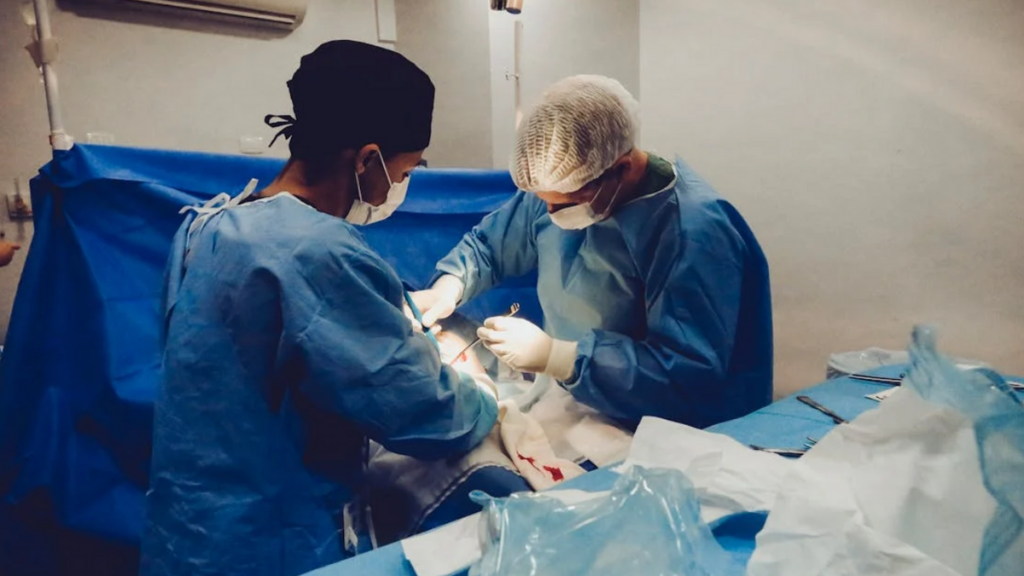
Prostate cancer surgery innovation reduces odds of post-op erectile dysfunction
Patients undergoing surgery for prostate cancer always have lurking fear of a common and most challenging side effect—erectile dysfunction (ED), which makes it difficult to maintain an erection.
In a surgical breakthrough, surgeons have devised a more precise form of surgery that nearly doubles the chances of men retaining their erectile function afterwards compared with standard surgery. The new technique has shown promising results in the first comprehensive trial of the procedure, reports The Guardian.
In the standard surgical procedure, nerves around the prostate often get affected during surgery, causing erectile dysfunction later. The prostate, a small gland in the pelvis, is part of the male reproductive system that makes the seminal fluid.
Also Read | Study ignites fresh hope for the bald, ‘sugar gel’ triggers healthy hair regrowth
During the radical form of surgery, surgeons have to remove the entire prostate and some of the surrounding tissue, including bundles of nerves necessary for erection. These nerves pass close to the prostate gland, and if one or both are removed or damaged during surgery, it can lead to erectile dysfunction.
Doctors try to perform a nerve-sparing surgery to preserve the erectile function, but the nerves may need to be removed if the surgeon finds cancer nearby.
Doctors in five UK hospitals adopted a new surgical approach to preserve crucial nerves that run through the outer layer of the prostate and play a role in erection.
The procedure, known as NeuroSafe, involves checking prostate tissue removed from the patient while the operation is underway. If the examination suggests the tumour has been removed, the nerve-containing outer layer of the prostate can be left intact, reducing the risk of erectile problems.
Also Read | Saturn’s rings will ‘disappear’ this weekend – won’t happen again until 2038!
Prof. Greg Shaw, the trial lead and consultant urologist at University College London hospitals NHS Foundation Trust, said: “This procedure gives surgeons feedback during the surgery to give them the certainty they need to spare as many nerves as possible and give men increased hope of recovering their sexual potency after their cancer is surgically removed.”
Prostate cancer is the most common form of cancer in men, with 50,000 cases diagnosed each year in England. Worldwide, nearly 1.5 million men are diagnosed and 375,000 die annually. The disease is very common in men over 50 and is labelled a silent killer because it causes no symptoms in the early stages.
The latest developments in robotic surgery have enabled surgeons to perform precision “nerve-sparing” operations in prostate cancer patients. This involves removing the diseased prostate while leaving the outer layers and the nerves running through them.
The doctors, however, must be certain that no cancer cells are left behind, and this is difficult to assess. If the cancer is advanced, surgeons tend to err on the side of caution and remove the whole gland with its outer layers to cut down the risk of missing any tumour cells and rule out a relapse.
Also Read | A 130-year-old Hindu temple in Malaysia faces demolition threat, to make way for a mosque
In the NeuroSafe procedure, doctors remove the prostate while preserving as much nerve tissue around it as possible. Slices of the prostate are then frozen, stained, and examined for cancer cells. If they find the tumour has reached the surface of the prostate, the outer layers and nerves may need to be removed. But if not, then the surgery is deemed complete.
The trial assessed 344 prostate cancer patients who had no history of erectile dysfunction. Half of them received the NeuroSafe procedure and half underwent standard surgery. A year later, 56% of the patients who underwent standard surgery reported severe erectile dysfunction, compared with 38% who had NeuroSafe surgery.
Moreover, less than a quarter, 23% to be exact, who had standard surgery reported no or only mild erectile dysfunction, compared with 39% who underwent the NeuroSafe procedure. The details of the trial were presented at the 2025 European Association of Urology congress in Madrid and published in the Lancet Oncology.
Also Read | China gearing up to deploy DeepSeek in military ops? Increasing use in non-combat support suggests so
Dr Matthew Hobbs, the director of research at Prostate Cancer UK, said: “Prostate cancer surgery is a life-saving option for lots of men, but it’s a major procedure that can cause side-effects like erection problems. A major challenge we face is how to cure men but also ensure they can live life to the full afterwards.
“This study is promising and provides evidence that innovative types of surgery can reduce erectile dysfunction in some men. However, more research is needed to prove whether NeuroSafe is as effective as traditional techniques at delivering a complete cure.”





Responses